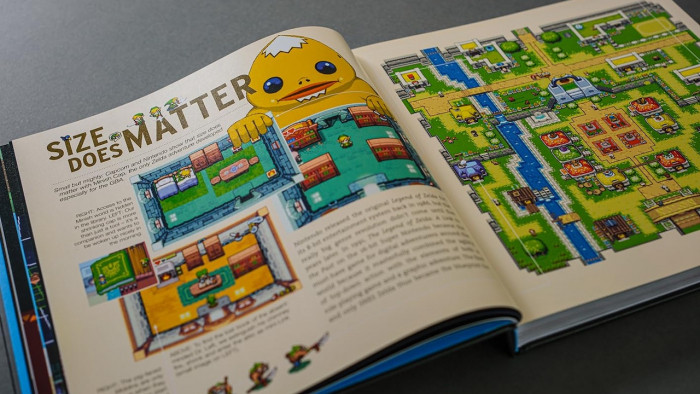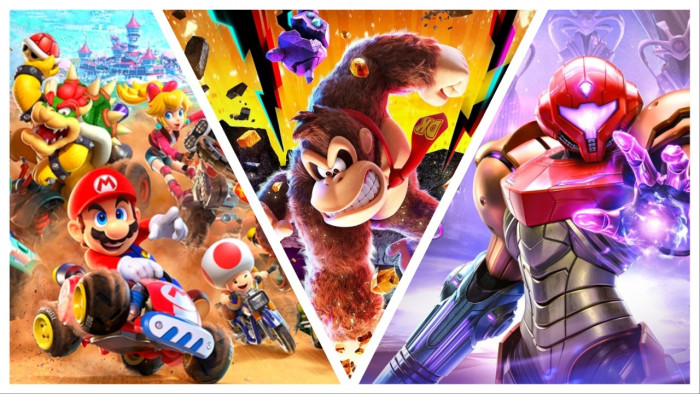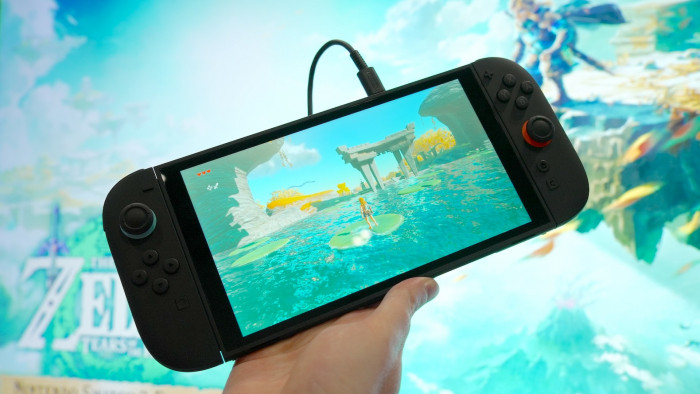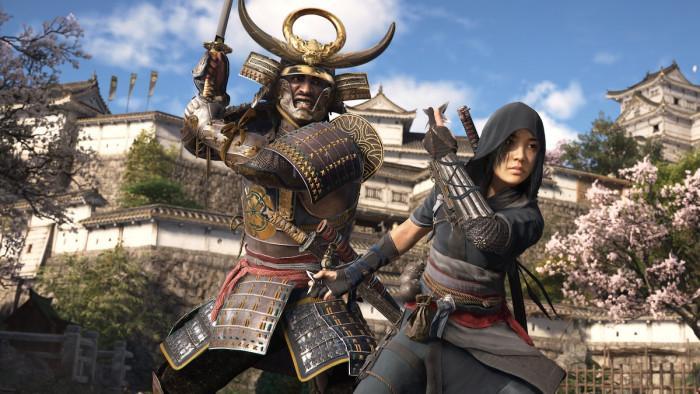The best video game books to read right now: 10 brilliant books about gaming
If you’re a gamer, all of these books deserve a place on your bookshelf or coffee table


Playing video games is a lot of fun, but if you want to dive even deeper into what is arguably the defining entertainment medium of the 21st century, why not spend some time reading about them, too.
We’ve pulled together a list of our favourite video game books, recent and past; a mixture of non-fiction, fiction and attention-demanding design-led books that look especially good on a coffee table.
Whether you want a deep dive on the state of the industry, a visual history lesson, an unputdownable love story, or just pages and pages of colourful retro screenshots to get all nostalgic over, you’ll find something in here worth diving into.

1. Gamish
(Edward Ross)
If you’ve made your way through the likes of Watchmen and Saga, why not make your next graphic novel one that guides you through the history of video games? Comic artist and lifelong gamer Edward Ross combines his two passions in this beautifully illustrated and comprehensive love letter to interactive entertainment, from Pong all the way through to Pokemon Go.
Ross not only tells the story of games through his illustrations, but also analyses what it is that draws us to them. You won’t find a more enjoyable history lesson.
2. Play Nice: The Rise, Fall, and Future of Blizzard Entertainment
(Jason Schreier)
Every one of investigative journalist Jason Schreier’s books is worth reading, but we’re highlighting his most recent work here. Play Nice: The Rise, Fall, and Future of Blizzard Entertainment is a behind-the-scenes examination of Blizzard Entertainment, and how the company that was once beloved for giving the world Diablo and World of Warcraft became embroiled in a series of scandals and standoffs with parent company Activision.
If you follow the games industry at all, you’ll know that Activision Blizzard was eventually acquired by Microsoft for $69 billion, and in his book Shreier talks to more than 300 current and former employees to tell the full story of this more than three-decade saga.
3. The Console Chronicles
(Lost in Cult)
Lost In Cult’s lovingly put together video game history books remind you what’s so special about both gaming - and print media. After celebrating everything handheld in the first book of the series, The Console Chronicles is a celebration of the many boxes you’ve had plugged into your TV through the years.
Spanning what it identifies as the nine hardware generations, from the early days of the Atari 2600 to the Nintendo Switch’s arrival in 2017, The Console Chronicles combines impassioned personal essays and nostalgic musings about each featured console with photography, box art and vibrant illustrations, making for an impressively thorough tribute to 50 years of fun and technical innovation.
4. Tomorrow, and Tomorrow, and Tomorrow
(Gabrielle Zevin)
Given the popularity of video games, there are surprisingly few great novels about them, but Gabriella Slevin’s Tomorrow, and Tomorrow, and Tomorrow is an exception.
Slevin’s phenomenally successful novel - which is now being adapted into a film - about two childhood friends who reconnect and collaborate on a game that takes the industry by storm, is very accessible to non-gamers, but Slevin’s lifelong love of the medium is evident in her writing. Tomorrow, and Tomorrow, and Tomorrow is a story of love, friendship and fulfillment at its core, but it also shines a light on the benefits of play.
5. Lost In A Good Game
(Pete Etchells)
Part memoir, part history lesson, part science-backed retort to all the negative mainstream media coverage that has always followed video games, Pete Etchells’ Lost In A Good game is a must-read for anyone who cares about games and what they can do for us.
Etchells begins with a deeply personal account of how his late father’s motor neurone diagnosis led him to immersing himself in virtual worlds as means of escape, which serves as a jumping off point for a wide-ranging examination of gaming and its enduring appeal. The slightly strange blend of emotive storytelling and hard facts research might not work for everyone, but the author’s passion and knowledge is evident throughout.
6. Tetris: The Games People Play
(Box Brown)
The incredible origin story of Tetris has been told many times in various mediums, but cartoonist Brian “Box” Brown’s graphic novel brings it to life in a way few others have managed.
The author’s striking artwork introduces us to computer engineer Alexey Pajitnov, who created Tetris as a hobby alongside his day job of developing software for the Soviet Union. Tetris’ brilliant simplicity made it an instant hit, and it wasn’t long before a bidding war for the publishing rights took hold in Moscow, with the American entrepreneur Henk Rogers - whose lifelong friendship with Pajitnov remains the beating heart of the whole Tetris story - determined to emerge victorious.
If you want to understand why everyone wanted a piece of Tetris in the late ‘80s, and why the legendary puzzler endures to this day, read this book.
7. Video Game of the Year
(Jordan Minor)
Compared to film and TV, gaming is still a young medium, and one that has evolved rapidly in the last 40 or so years. Tech journalist Jordan Minor sets out to chart that remarkable journey in his book, Video Game Of The Year.
The premise is simple: Minor selects one game from each year, from the arrival of Pong in 1977, through to 2022 when the book was sent to the printers, and explains the significance of each one, with each featured game accompanied by original artwork that makes flicking through it a delight.
There are some pretty obvious picks, with it being impossible to overlook the likes of Super Mario Bros. and Final Fantasy VII in a book like this, but Minor gets a bit more leftfield with some of his 21st century selections. 2022’s remake of the subversive indie cult classic, The Stanley Parable Ultra Deluxe, makes for the perfect final say on just how far games have come.
8. Console Wars: Sega, Nintendo, and the Battle That Defined a Generation
(Blake J. Harris)
This one has been around for ages, but anyone interested in the video game industry is no doubt aware of the battle between Sega and Nintendo that dominated the ‘90s as much as Oasis vs. Blur. Blake J. Harris’ book is the most thorough account of how it all went down that you’ll find.
It remains very amusing that whether you swore allegiance to Mario or Sonic in the playground was a genuinely industry-shifting moment, and the result of a corporate slugfest that saw a plucky upstart take on the most established name in the game. The plumber and co would argue that they ultimately won the war, but after reading this book, which draws on hundreds of interviews with former employees of both companies, you’ll have a newfound respect for Sega and its hedgehog-led strategy.
9. The Unofficial GBA Pixel Book
(Bitmap Books)
Have a browse of Bitmap Books’ collection of books at your own risk, as every one of them would take pride of place on a coffee table, but we can only pick one for this list, and it has to be The GBA Pixel Book — also pictured at the very top of this article. It's a beauty.
This visually stunning tribute to Nintendo’s beloved handheld features more than 240 games from the system’s incredible library, spread across 300 pages of articles, images, maps and high-res pixel art. The book includes nearly 4,000 screenshots of the included games that fill entire pages, from Metroid Fusion to Mother 3, all captured during the assembly process, making it the ultimate collectors item for those with fond memories of the GBA era. Which, let’s face it, applies to anyone who owned one.
10. Death by Video Game
(Simon Parkin)
There are few people who write about video games more engagingly than Simon Parkin, (we also strongly recommend listening to his excellent podcast, My Perfect Console, if you don’t already), and in this book he explores the obsessive tendencies that video games have the potential to tease out of players, and why some people appear willing to enter into sometimes dangerously extreme relationships with their hobby.
Parkin’s starting point is a spate of deaths in gaming cafes in Taiwan, but the book is less interested in demonising the pastime than it is in getting to the heart of its uniquely powerful allure, which he does by drawing on a series of case studies, each concerning the impact a virtual world has had on someone’s real one. It’s really a book about people, then, and will make you think about gaming in ways you haven’t before.
Latest
Related Reviews and Shortlists



















